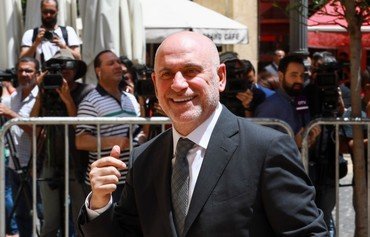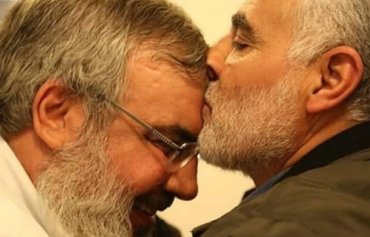The US on Tuesday (September 8th) slapped sanctions on two former cabinet ministers in Lebanon over support to Hizbullah as it vowed to isolate the Iran-aligned movement amid the country's political tumult.
The Treasury Department targeted former finance minister Ali Hassan Khalil and former transport minister Yusef Fenianos, freezing any assets they hold in the US and making any financial transactions with them a crime.
But after internal debate, the US stopped short of targeting any current officials.
"The US supports the Lebanese people's call for reform, and we will use all available authorities to promote accountability for Lebanese leaders who have failed their people," Secretary of State Mike Pompeo said in a statement.
"Hizbullah depends on Lebanon's corrupt political system for survival," he said.
"Anyone helping to advance Hizbullah's political or economic interests is further eroding what remains of effective governance and facilitating financing for terrorism," Pompeo added.
The action comes as the US and France press for a new government in Lebanon to push urgent reforms.
Khalil, part of the Amal party, served as finance minister from 2014 until April this year, when a new technocratic cabinet took over amid street protests in which he was frequently accused of graft.
The Treasury Department said that Khalil, who also has served as health minister, helped direct funds to Hizbullah institutions to evade US sanctions.
Fenianos, according to the Treasury Department, received "hundreds of thousands of dollars" from Hizbullah in return for political favours.
It said he also provided sensitive documents to Hizbullah on a special UN tribunal which found a member of the party guilty over the 2005 murder of former prime minister Rafic al-Hariri.
'Time for different politics'
Protests in Lebanon have crossed longtime communal lines to demand an end to corruption and better economic management.
Amid outrage over last month's blast, Lebanese have increasingly voiced a willingness to move away from the complex power-sharing system that has ensured posts to each community but entrenched individual players.
"It is time for different politics in Lebanon," said David Schenker, the top US diplomat for the Middle East.
"This should be a message both to those who co-operate with Hizbullah, those who enable Hizbullah, but also Lebanon's political leaders who have ignored the responsibility to address the needs of the people and have not fought corruption," he said of the sanctions.
The US chose not to target prominent Lebanese who have been denounced in recent protests, including central bank governor Riad Salameh.
But Schenker warned of unspecified further action in the "coming weeks and months".
"They take time but, yes, I think everyone should absolutely expect more... sanctions to come," he said.

![A picture taken May 23rd, 2018, shows then-finance minister Ali Hassan Khalil arriving at parliament in Beirut. The US on September 8th slapped sanctions on Khalil and another former minister for alleged corruption and support of Hizbullah. [Anwar Amro/AFP]](/cnmi_am/images/2020/09/09/25990-Lebanon-finance-minister-600_384.jpg)






